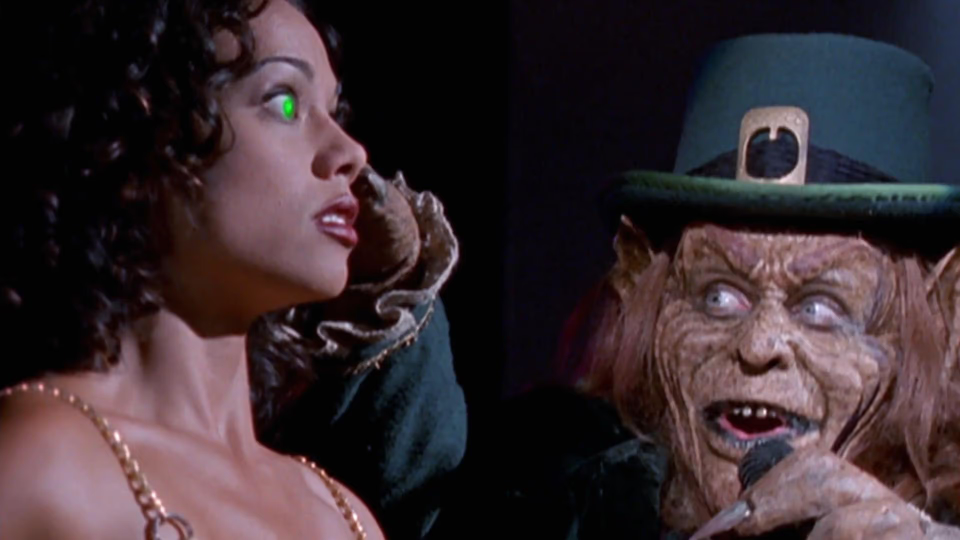Leprechaun 5: In the Hood

After the original, I opted to jump straight to the fifth entry in the franchise, comfortable I’d lose little context. I knew this entry took a critical bashing, which may have lowered my expectations, but I found it entertaining and packing a surprising bite.
The plot concerns three Compton youths who burgle a mogul’s office and unleash the titular leprechaun. This makes the leprechaun sound central to the story, but he is not ^[The script comes with five credited writers, a large number of paychecks for a direct-to-video sequel. It makes me wonder if this didn’t begin life as a non-Leprechaun story.]. The youths are rappers who aspire to enter a talent contest they believe will propel them to stardom. They lack talent, but through the burglary acquire a magic flute that makes their performances irresistible. The mogul, played with relish by Ice-T, wants it back to support his own success. The leprechaun serves as a convenient plot device.
On the surface, it’s a silly film. In an early scene set in the 70s, the leprechaun uses magic to rip a gun from Ice-T’s hand. Undeterred, Ice-T reaches into his prodigious afro and pulls out a knife. Again the leprechaun disarms him. Again, undeterred, Ice-T reaches into his afro and this time produces a baseball bat. Another scene proffers the classic Scooby-Doo gag where our three heroes cower arm-in-arm. The camera pans as one who screams, turns to another, who screams and turns to another, who screams and realizes he’s arm-in-arm with the leprechaun, who also screams.
But beneath the camp lurks a biting commentary. Early on, the three rappers aspire to rap about positivity. As they walk through the graffiti covered back alleys of Compton, they quote motivational speaker Tony Robbins. Later, they seek refuge in a local church, where they freestyle a would-be motivational hymn that devolves into a condemnation of the “Lord works in mysterious ways” platitude. By the end, any pretense of positivity has vanished, but our hero finds success. I wasn’t expecting this level of satire. It’s not Paddy Chayefsky, but for the fifth installment in a direct-to-video franchise, it’ll do.